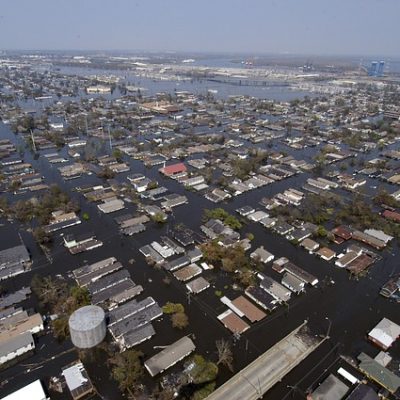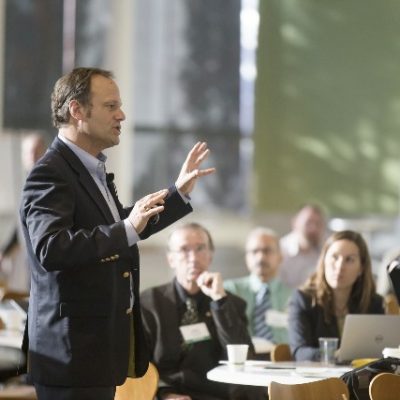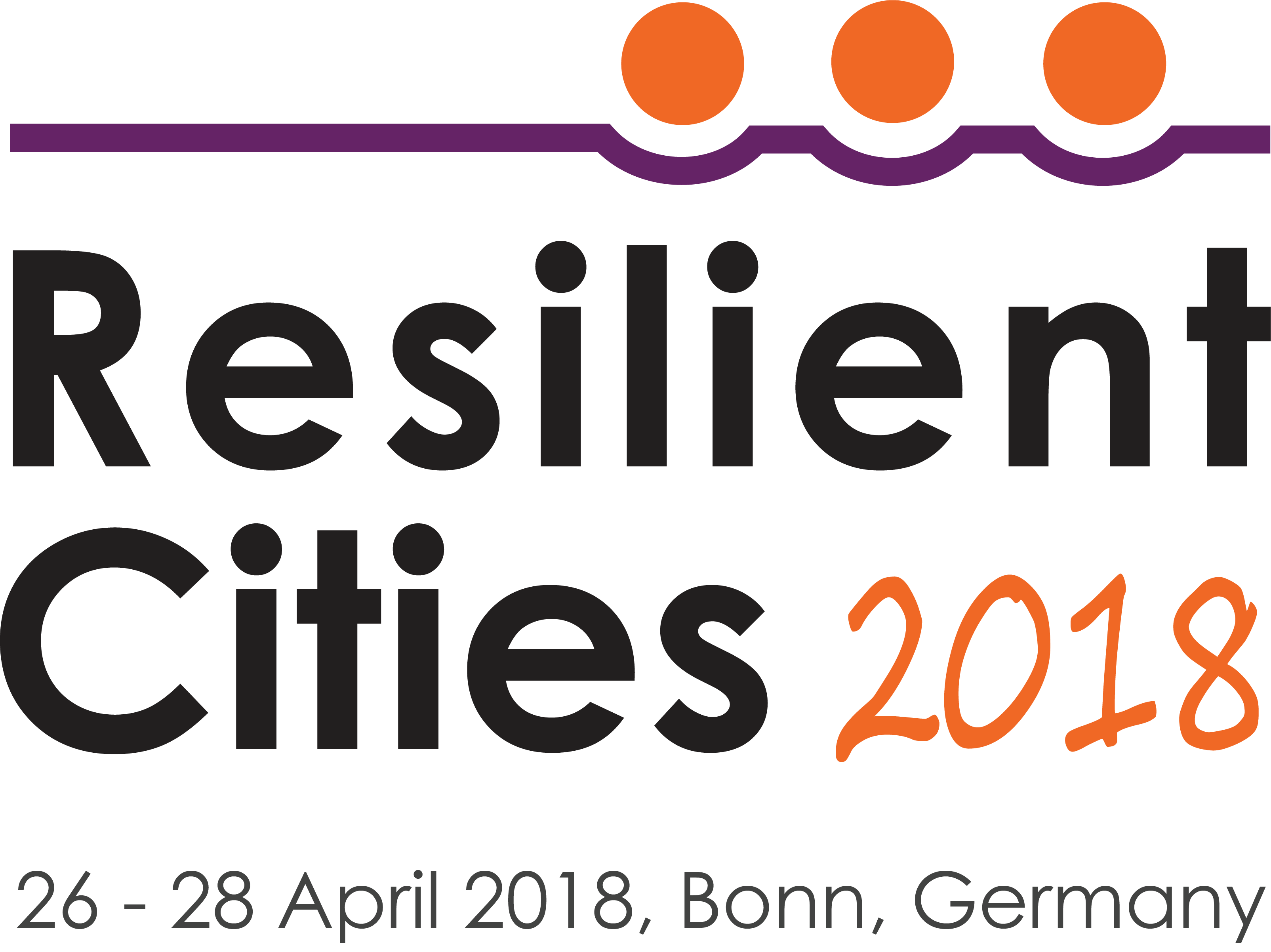Cities & Regions in Focus
Sessions with a Focus on Cities and Regions
Effective climate change adaptation and urban resilient strategies need to be discussed and reviewed regularly. Therefore Resilient Cities features local case studies with lessons learned of global relevance for resilient planning and adaptation. “Cities in Focus” sessions show how different cities approach similar aspects of adaptation and overcome common challenges. Participants in these special sessions and interactive workshops have the opportunity to directly engage with cities and project stakeholders, learn, interact and give critical feedback to peer cities and experts.
This year, special “Cities and Regions in Focus” sessions are organized to allow a close look into specific, but transferable climate change adaptation and urban resilience strategies:

A “Cities in Focus” Session:
Building resilience in the face of limited resources: the case of Mozambican coastal cities (Session C1)
This session explores the tools and approaches of coastal cities in Mozambique to enhance resilience in a context of limited resources and funding. The Mayors of Pemba and Quelimane and senior municipal managers examine the context and realities of their cities and how they address the underlying risk factors and stresses posed by informal settlements, changes in urban land use, ecosystem degradation to build urban resilience, which is relevant to other low-income coastal cities. The session highlights the tools that have provided the most benefit at the least cost and can be applied for use in similar contexts globally.

A “Region in Focus” Session:
Louisiana adaptation: mitigation to managed retreat (Session F1)
Following 2005’s Hurricane Katrina, the State of Louisiana recognized the long-term connection between coastal land loss, subsidence, sea level rise and their collective effects on flood risk. In an effort to combat these conditions, the state created the Coastal Protection and Restoration Authority (CPRA), and in doing so, has made significant investments in modeling out future land loss and flood risk on a 50-year time horizon. Although crucial to the future viability of the Louisiana coast, the restoration of land and creation of structural flood protection will not alone save the coast of Louisiana or the inhabitants that call this land home.
The objective of this panel discussion is to discuss the lessons learned and best practices from these adaptation efforts.

A “Cities in Focus” Session:
Lima, Peru: Local adaptation measures to climate change (Session G3)

A “Cities in Focus” Session:
Participatory citizen engagement and in urban resilience (Session H1)
It is a truth universally acknowledged that urban resilience and climate change adaptation efforts are most beneficial when there is local ownership of efforts. Though undeniably an integral part of urban resilience efforts, citizens’ active and meaningful participation is not necessarily straightforward or obvious in all local and cultural contexts.
Here to present different approaches to citizen engagement are four local government representatives. From Copenhagen, Denmark we learn how “storytelling” could be used as a powerful tool for participatory planning and implementation, generate citizen’s engagement, and enhance the impact of the City’s adaptation work. From Guimarães, Portugal we acknowledge how citizen participation has been integrated into the local governance structures to create a culture of positive change for sustainability and resilience. Next, representatives from Quito, Ecuador share their strategy for including citizen voices in resilience planning and how to ensure that these voices are successfully integrated and translated to action. Santa Rosa, Philippines rounds up the session by introducing an innovative and collaborative project that aims to provide both socio-economic, as well as urban resilience benefits to its people, including significant improvements for residents of informal settlements. The City shares its collaborative process and actions taken by the city to increase downward accountability vis-à-vis resilience measures.

A “Reality Check Workshop”:
Building Urban Resilience in Istanbul (Session H2)
For Resilient Cities 2018, special sessions include the “Realizing Urban Resilience” Reality Check Workshops, a signature congress element focusing on the reality of climate change adaptation and building Urban Resilience for a particular city, metropolitan region or town.
Cities have become increasingly vulnerable because of chronical stresses and acute shocks. However, there are ways to increase a cities resilience as well. Urban Transformation is one the most important tools. The Istanbul Urban Transformation Master Plan (IKDMP) is being developed to provide a holistic approach. In the Reality Check Workshop Bayrampasa district will be used as a case study. In this project, a Build & Transfer & Evacuate approach has been implemented as an Urban Transformation Model. In this approach, buildings scheduled to be erected on state-owned land will be bartered against the existing at-risk buildings which are selected from the vicinity.

A “Local Government Consultation”:
Global Covenant of Mayors for Climate & Energy: we want to hear your voice (Session H5)
This facilitated discussion aims at answering questions and concerns on the Global Covenant of Mayors for Climate & Energy (GCoM) that local governments wish to share and discuss. These could be on the practical developments and framework of the merger of Compact of Mayors and EU Covenant of Mayors, or access to finance, the use of reporting platforms and available tools and support.
Taking the opportunity to have many city representatives participating in the Resilience Cities congress, ICLEI as a Founding partner of the GCoM shares updates on GCoM developments, followed by constructive discussions and suggestions from the local perspective.
